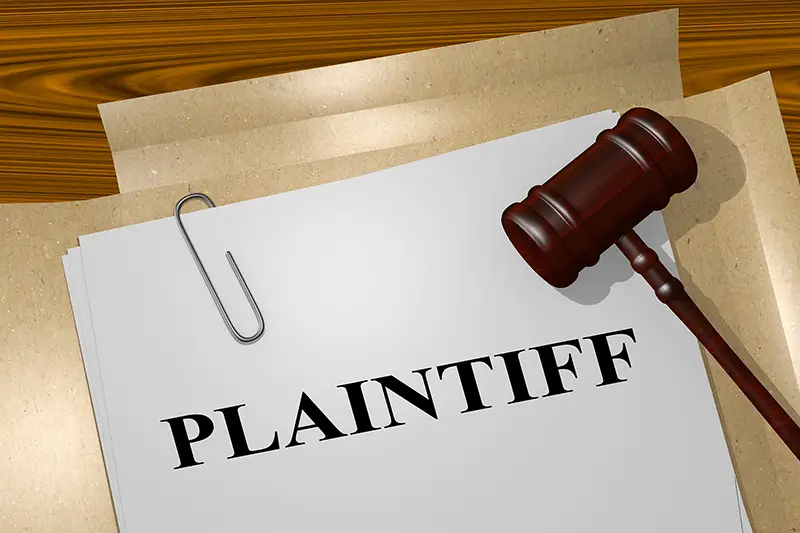Click here to get this post in PDF
If someone has wronged you, you have the right to bring a lawsuit against that other person in court. In such situations, you’ll become the plaintiff in your case. Primarily, a plaintiff refers to an individual who files a lawsuit against the defendant or other party. It’ll be your responsibility to prove to the judge or jury that the other person committed the act or omission that you’re accusing them of.
Thus, to ensure a favorable outcome for you as a plaintiff, here’s a guide you can use in handling a lawsuit:
1. Hire An Experienced Attorney
Typically, filing a lawsuit in court can be a complicated and confusing undertaking. With all the things that need to be taken care of, including the elements of the case and court processes, it’s in your best interest to get represented by a reliable attorney who specializes in cases similar to yours. When you have a legal professional by your side, you can navigate your case efficiently. They will help you do things that can improve the odds of winning your case.
For example, if you deal with a personal injury case, hiring an attorney means having someone who can prepare all the necessary legwork, including the meeting of the deadlines or statute of limitations. Once you file the papers to start the lawsuit, they’ll make sure you don’t miss any deadlines to avoid receiving a sanction or having your case being dismissed outright.
Hence, if you want to handle your lawsuit with peace of mind, it’s a good idea to work with an attorney who can assist you throughout the process.
2. Don’t Say Anything About Your Case Offline And Online
As mentioned, being a plaintiff comes with the burden of proving that the defendant has violated a law that resulted in harming you. Because of this, you should be very careful in anything you say or do as it can be used as evidence against you in a court of law. This extra caution entails that you shouldn’t discuss the facts of your case with anyone other than your attorney. In the event someone asks you about the lawsuit, let your legal counsel communicate with them to avoid trouble later on.
Moreover, the same right to remain silent applies to the online world. While you can use social media platforms to share experiences and thoughts and reconnect with friends, they shouldn’t be utilized as channels for sharing the details of your case.
For example, if you’re filing a personal injury lawsuit, you should refrain from providing information about it online to protect your rights as a plaintiff. To better understand this matter, you could try here to get more information and seek legal help right away.
3. Learn How Your Lawsuit Works
While you can always have your lawyer help you with the process, it’s still important for you as a plaintiff to know and understand how your lawsuit works. This is to help you set up appropriate expectations for your case that can affect the way you make decisions for your legal battle.
Specifically, once you decide to become a plaintiff in a lawsuit, you should be aware that the case process is composed of different stages. These can include the filing of a complaint, discovery of evidence, attempt at settlement, trial, and appeal. Thus, the more you know how a lawsuit works, the more you can handle your case efficiently by making sound decisions necessary for the protection of your rights.
4. Gather As Much Evidence As Possible
Since the burden of proving the defendant’s commission of a wrongful or illegal act is vested upon the plaintiff, you should work with your legal counsel in collecting as much evidence as possible. When you gather a sufficient amount of evidence, you’ll be able to handle your case more efficiently and properly.
As an example, in initiating an injury lawsuit, you should gather pieces of evidence like medical records, medical bills, photos of the accident scene, witness testimonies, and many more. The more evidence you collect, the more you can prove liability on the part of the defendant, thereby winning your case.
5. Try To Remain Calm
While it’s true that handling a lawsuit can be a frustrating experience, you should still try to remain calm, especially if the defendant is doing their best to shift the blame on you through threat, intimidation, or force.
You should never allow your strong emotions to overpower you if you want to improve your chances of getting a judgment in your favor. Let your attorney handle the case for you. Since they know the ins and outs of litigation, it’s best if you follow their advice to avoid making hasty decisions that may adversely impact the outcome of your lawsuit.
Wrapping Up
Indeed, dealing with a legal case can be a challenging experience, especially if you have no idea how to navigate one in your favor. Therefore, if you find yourself filing a lawsuit against another person, consider this plaintiff’s guide so you’ll know what to do from start to finish. Remember, knowing your role as a plaintiff in a lawsuit can help you achieve a positive legal outcome.
You may also like: What Kinds of Lawyers Work Criminal Cases?
Image source: stock.adobe.com


